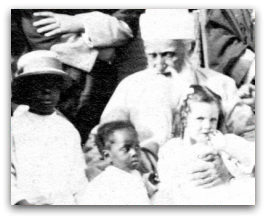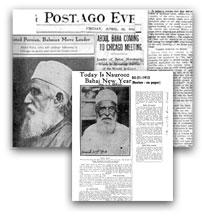The world that exists today is not the same as it was centuries ago. Humanity has developed drastically over the past two centuries, and the effects of such a recent development can be felt around the world. Humanity is at a crossroads.

Since the beginning of recorded history, the whole of humanity has always been at the mercy of nature. The great civilizations of the past rose and fell like the ocean's tides. The current global civilization that is emerging from only two centuries of innovation and consolidation still has more to accomplish. The same unsustainable practices of the kingdoms and empires of the past is in practice now. There is one vital thread our civilization is clinging on to that distinguishes the present from the past.
The ability to effectively change the face of the planet is within the grasp of every human being. For example, the individual is in power to decide what to purchase from the supermarket. The global economic structure is currently founded on consumer demand. If there's a need, there is someone who will have to address it. As always, there is a need for everyone to live a healthy life that is necessary for well-being - "a contented state of being happy and healthy and prosperous"(1). Whole economies can be geared towards the production of a product to meet the need of the individual. One individual's choice to purchase one product can revolutionize the economy of another country. Mountains are flattened in order to extract resources, like coal, to meet the large demand worldwide. The consumer's choice to avoid a product will send the message to a company that such a product is not welcome. No longer does an elite class rule over the masses with an iron fist. The change of view of the masses is important if the global civilization under-development is to truly be everlasting. The fate of future generations depends upon it.

The fate of the world is in the people's hands.
The change in the current perspective on well-being is what future generations depend upon. For one, the current economy is a dynamic economy - always changing to meet the needs of the consumer. Also, in an effort to be "economical," companies limit the lifespan of their products in order to sell more. In addition, the resources available are used as if they are unlimited. Instead of aiming toward the creation of the best possible product, companies aim to create a product better than the others. Although the competition between companies has lowered the prices of the consumer, the companies must not forget their true purpose. The Well-Being of the global community should be the purpose of every individual entity - person or organization.
"Let your vision be world-embracing, rather than confined to your own self. The Evil One is he that hindereth the rise and obstructeth the spiritual progress of the children of men..."(2)
If such a vision is embraced by all, the ability to have an everlasting civilization will be within the grasp of humanity. Equity and justice towards all is a necessity. The planet needs it.

When the people realize how a global vision leads to their own well-being, the world will be further revolutionized. Not only will there be an even larger explosion of ideas, the prosperity of all will be achieved. Companies that rely on an outdated economic model powered by stinginess and fear, anticipating a shortage of new ideas, will wonder why such a fear of a shortage of any ideas had been so prevalent. The impediment of progress is caused by the very fear of it occurring. Sacrifice has been and will always be the reason for the advancement of the world. The fear of making sacrifices must be eliminated if people truly don't want their fears becoming a reality. Regardless, sacrifices must be made in a proactive or reactive society. The question of when and what to sacrifice remains. The dilemma of the world based on fear is a reality for many. From the beginning of recorded history, fear has been used to control others. Instead of the promotion of education and understanding, fear is promoted to spur people into action. Fear is the dictator's best friend.
From time immemorial, humanity has progressed continuously despite the many obstacles that it has faced. People are tired of the abuse that the malicious and corrupt have perpetrated. As of late, the will of the people has overcome the fear of repression. As a result of sacrifice of themselves for the well-being of others, the people have rejected the practices of their ancestors and have become the cause of the development of the entire human race. The development of the human race will require something different in every age. At the heart of humanity's development is the sacrifice of the people. "Until a being setteth his foot in the plane of sacrifice, he is bereft of every favour and grace"(3).
From a prison in 'Akká in the late 19th Century, a call was sounded to the rulers and peoples of the world:

"
We desire but the good of the world and the happiness of the nations; yet they deem Us a stirrer up of strife and sedition worthy of bondage and banishment…. That all nations should become one in faith and all men as brothers; that the bonds of affection and unity between the sons of men should be strengthened; that diversity of religion should cease, and differences of race be annulled—what harm is there in this?… Yet so it shall be; these fruitless strifes, these ruinous wars shall pass away, and the ‘Most Great Peace’ shall come…. Yet do We see your kings and rulers lavishing their treasures more freely on means for the destruction of the human race than on that which would conduce to the happiness of mankind…. These strifes and this bloodshed and discord must cease, and all men be as one kindred and one family…. Let not a man glory in this, that he loves his country; let him rather glory in this, that he loves his kind…."(4)
The concept of world citizenship could never be fathomed by the masses in its entirety. The energies released in the realization of such a concept of world citizenship and its prerequisites have caused an irreversible change that must occur as a result. The advent of the maturation of the human race is apparent, and such a process is still taking place across the globe. The shock waves can be felt in every nation on earth, and no one is sheltered from such a phenomenon. The peoples of the world are realizing that "the earth is but one country, and mankind its citizens"(5).

The planet is in need of responsible actions on the part of humanity, as a whole. With humanity's greater understanding of reality, such a realization should amount to a greater amount of productivity, progress, and happiness. With an increase in the potential destruction humans can cause, the potential production of the human race must also be just as large. Instead of a narrow-minded view of progress that is essentially harmful, people must expand their horizons and understand the full impact of their actions. Please consider the term sustainability. The effects of the actions of individuals are sustained - "maintained at length without interruption or weakening"(6). What one person commits on one side of the world affects everyone permanently.
"Be anxiously concerned with the needs of the age ye live in, and center your deliberations on its exigencies and requirements."(7)
In conclusion, the perspective on well-being based on self-improvement is essentially the same as world-betterment. Self-improvement can be defined as "the act of improving yourself"(8). The perspective of many must be changed from a limited self-centered view with negative effects on the surroundings to a altruistic view with the understanding of the inter-connectedness of the peoples of the world. Self-advancement undeniably relies upon the advancement of others. Companies are composed of people, and companies depend upon people. It is the duty of every individual to demand world-betterment in order for anyone to act.
"So powerful is the light of unity that it can illuminate the whole earth."(9)
- Bahá'u'lláh
Citations1. (Princeton University's WordNet Search - 3.0)
http://wordnetweb.princeton.edu/perl/webwn?s=well-being
2. (Gleanings from the Writings of Bahá'u'lláh, XLIII, p. 94)
http://reference.bahai.org/en/t/b/GWB/gwb-43.html
3. (Selections From the Writings of 'Abdu'l-Bahá, XXVI, p.76)
http://reference.bahai.org/en/t/ab/SAB/sab-37.html
4. (Proclamation of Bahá'u'lláh, Introduction)
http://reference.bahai.org/en/t/b/PB/pb-1.html
5. (Gleanings from the Writings of Bahá'u'lláh, CXVII, p.250)
http://reference.bahai.org/en/t/b/GWB/gwb-117.html
6. (Princeton University's WordNet Search - 3.0)
http://wordnetweb.princeton.edu/perl/webwn?s=sustained
7. (Gleanings from the Writings of Bahá'u'lláh, CVI, p.213)
http://reference.bahai.org/en/t/b/GWB/gwb-106.html
8. (Princeton University's WordNet Search - 3.0)
http://wordnetweb.princeton.edu/perl/webwn?s=self-improvement
9. (Gleanings from the Writings of Bahá'u'lláh, CXXXII, p.288)
http://reference.bahai.org/en/t/b/GWB/gwb-132.html




















